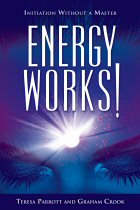

M.B. Ch.B.
M.R.C.P.(UK)
SKHM Teacher
Reiki & Karuna Master

B.M. M.R.C.Psych. MSc.
SKHM Teacher
Reiki & Karuna Master
 |
Patrick
Zeigler Founder of the All Love / SKHM system |
Graham
and Teresa have explored the world of SKHM to a depth that few
have been able to achieve, and, most importantly, they have been
able to share their experience with others through their words
in the most beautiful way. Those who read about their experience
will be initiated in a journey of the heart. I highly recommend
allowing yourself to experience that journey. |
|
What are dreams?
Dreams are a gift. They are a regular, spontaneous and insightful communication from yourself to yourself about yourself. It is like downloading an exclusive newsletter entitled ‘You’ every single morning. What could be more fascinating?A dream (from Old Saxon joy, music) is a series of thoughts, images, sensations, or emotions occurring in the mind during sleep.
We spend a great deal of time dreaming; we dream every one and a half hours during the night (whether we remember them or not); we all spend time day-dreaming, where in unguarded moments we drift into a relaxed state. Then there are the things we dream of or long for; the cherished perfect visions of our ideal life. To dream is to envisage, to picture to oneself – and, perhaps most importantly, to believe possible. We know from our own experience that dreams throw up new ideas, they make us feel an enormous variety of emotions; they are a source of imagination and inspiration.
We know from research studies that dreams are an altered state, an alternative perspective of reality that is different from our normal conscious awareness. They are outside of time and space. Past happenings, current preoccupations and future possibilities, all happily jostle along side by side. They are an ever-changing personal landscape, in which we play all the parts and where our experiences and perspectives are constantly shifting.
If you stay awake for days without ever dreaming at all, you get progressively more depressed, disorientated, and eventually show signs of madness.
Therefore, dreams happen for a reason. They are a place where we are constantly sensing and reacting, re-playing and processing our emotions and re-organising our thoughts. It seems then that we cannot live without dreams. After all, being responsive and in a state of continuous motion is what’s meant by being alive.
Siegel: ‘When we communicate in visual images, we tell the truth, because we cannot manipulate the language as well.’ (49)
Extracts from Energy Works! Initiation without a Master.
Authors Teresa Parrott & Graham Crook. Foreword by Patrick Zeigler. ©O Books 2005
© 2005-2015 Teresa Parrott and Graham Crook. - Copyright
Shenu ©1999-2015 Patrick Zeigler